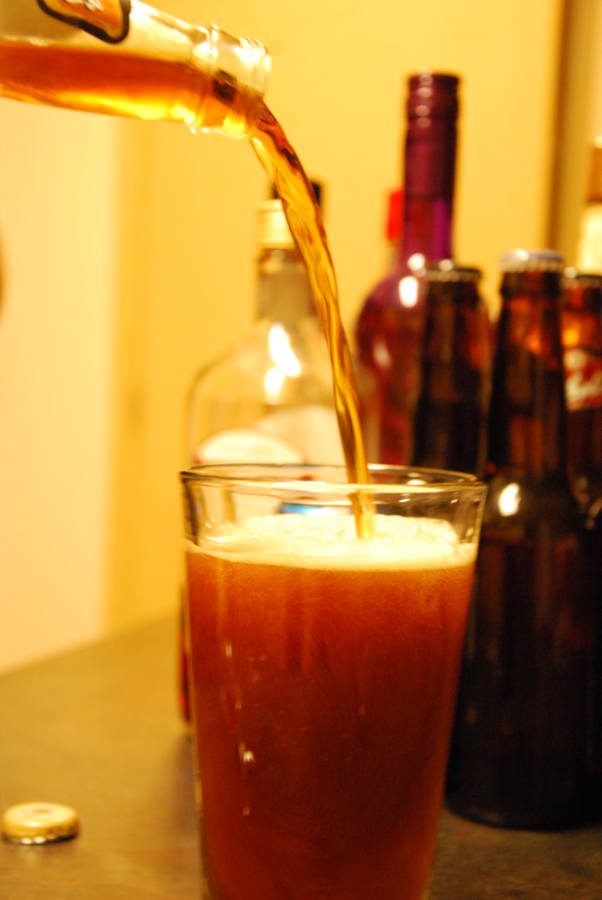Photo by Luke Nankivell, photo editor
Drunkorexia. It’s a made-up word describing a real problem, and students at Drake University have fallen victim to this practice.
Drunkorexia refers to the practice of binge drinking without much food in your system. Some use this practice to save calories for drinking that they would otherwise spend on eating.
The term was coined after a University of Missouri study came out surveying the long-term effects of this practice. The student-led study found that one in six students had restricted taking in some food calories to save them for alcohol at least once in the year before the survey.
Jess Walther, a senior radio/TV major from Cedarburg, Wisc., said she knows about the concept and believes many girls practice it.
“A lot of girls I know will eat a really big lunch, knowing that they’re not going to have dinner so they can go hard that night.” Walther said.
Walther also said she’s experienced the effects of alcohol on an empty stomach.
“You get drunk a lot faster on an empty stomach. There’s doing it on purpose, and (then) when it happens accidentally. All of a sudden you’re like, ‘Oh crap, I probably should’ve eaten more today,’” Walther said.
“It’s particularly a weekend activity. You have to plan your whole day when you go out on the weekend.” Walther said. “When you know there’s just going to be a lot of drinking into the wee hours. I mean, drinking a beer is like eating a big roll of bread. By the end of the night you’ve eaten a lot of bread.”
Walthers said she sees it as an activity mostly girls participate in.
Several other students said they have unintentionally elt the effects of alcohol on an empty stomach.
“I’ve done it on accident. Never on purpose though,” said Dan Kreipke, a senior environmental science major from Ladue, Mo.
Students can use this practice to save calories or money but at what risk to their health?
LuAnn Volkmer, the nurse practitioner at the Drake Student Health Center, says that this type of behavior can increase a person’s risk of alcohol poisoning.
“It would be a lot easier for people to get alcohol poisoning because the nutritional component is not there. Your stomach and intestines aren’t absorbing nutrients — they’re absorbing calories and the alcohol.” Volkmer said, “Those two things by themselves, you’re going to feel the head rush real fast. But, it depends on what you’re drinking, as far as the alcohol content goes.”
Though the practice is present on Drake’s campus, Volkmer said students have never talked to her about it.
“Nobody’s going to admit to that if they come here,” Volkmer said, “They might say they drank but they’re not going to say that they skipped a meal to drink. No one’s coming in and saying ‘I purposely did not eat to get more drunk’.”
Volkmer said that binge drinking, empty stomach or not, will produce the same results.
“If that gives you the buzz that you want, or you like that feeling, it just sets you up for alcohol addiction. That’s life long and if you’re addicted to alcohol you’re going to have liver problems.” Volkmer said. “The whole ‘drunkorexia,’ I mean it doesn’t matter how you get drunk. If you binge or choose not to eat, and then you drink and get drunk, you’re still getting to that same end point.”







